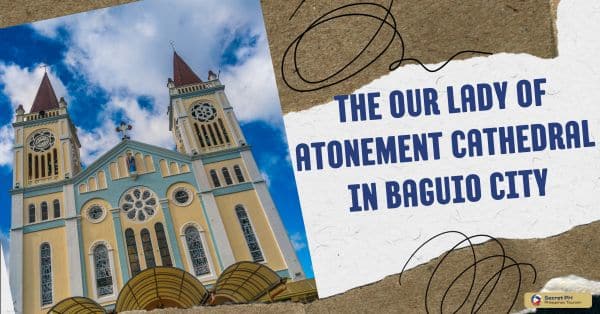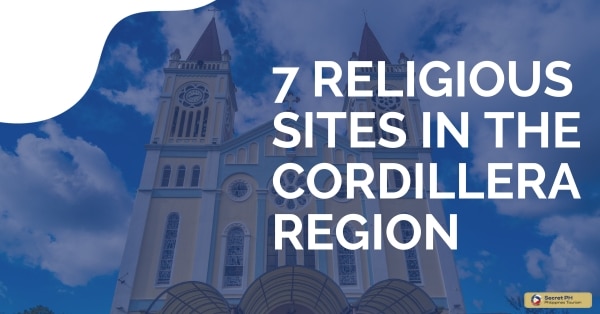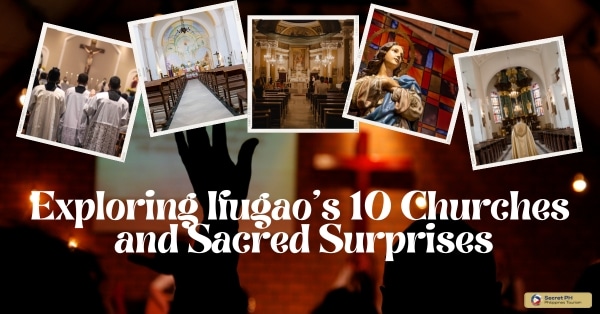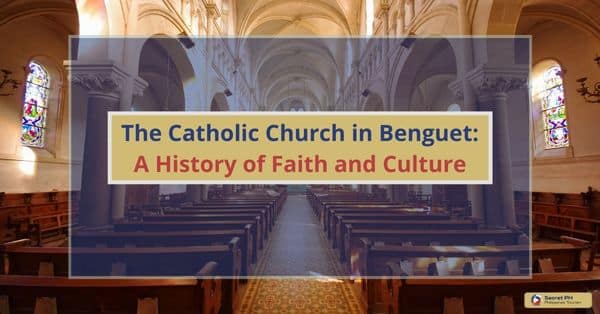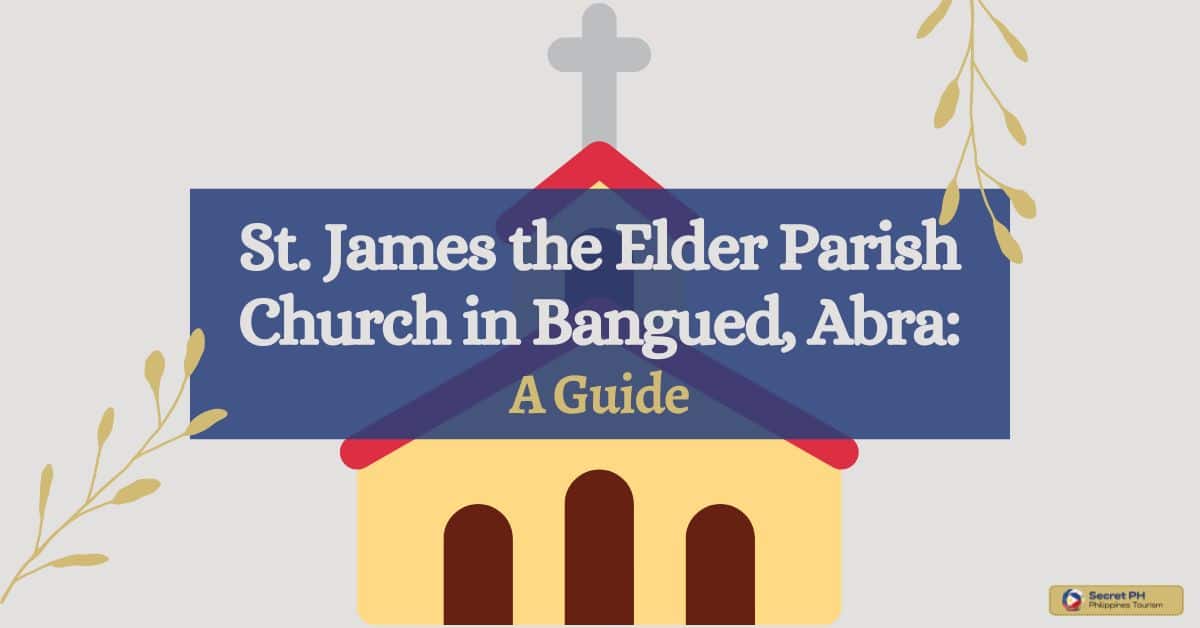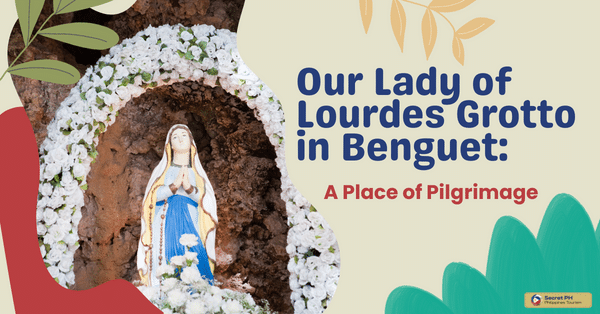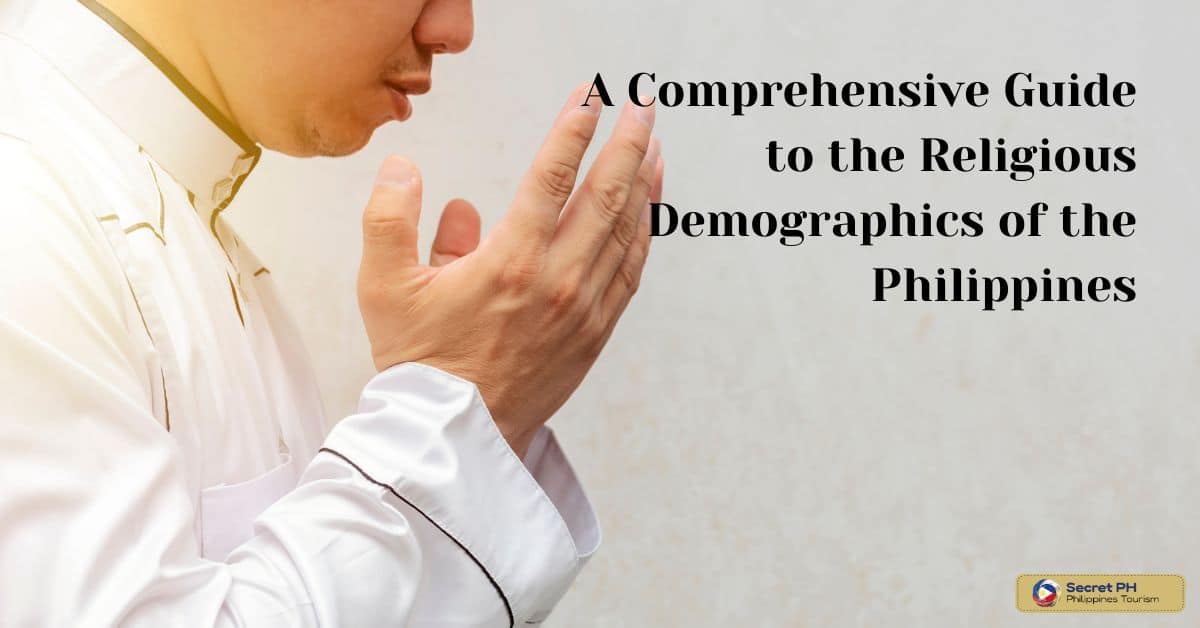The Indigenous Peoples of Benguet, Philippines, have a profound connection to their ancestral beliefs, rooted in nature and ancestral worship. Their rich cultural heritage faces challenges from modernization and cultural assimilation, jeopardizing the preservation of their sacred traditions. Despite this, the people of Benguet remain committed to passing down their ancient knowledge and engaging in practices that honor their ancestors.
This article will explore the various beliefs and practices of the Indigenous Peoples of Benguet, the challenges they face in preserving their traditional ways and what the future might hold for these religions. It is an important reminder that our collective history goes far beyond a single religion and should be cherished and respected by all. The Indigenous Religions of Benguet are a unique part of the province’s history that must be celebrated and preserved.
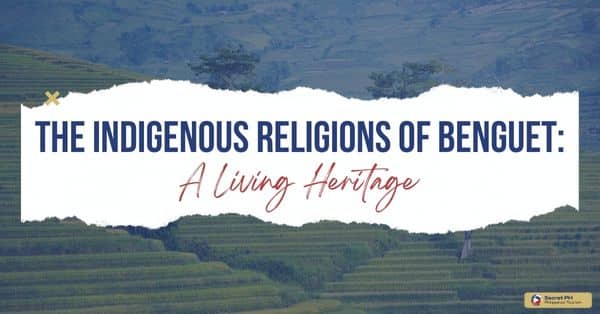
The People of Benguet
The people of Benguet are a diverse group of indigenous peoples who have lived in the Cordillera Mountains of northern Luzon for centuries. They are known for their strong cultural heritage, their resilience in the face of adversity, and their deep connection to the land.
The three major ethnolinguistic groups in Benguet are the Kankanaey, the Ibaloi, and the Kalanguya. The Kankanaey are the largest group, and they are found throughout the province. The Ibaloi are concentrated in the southern part of the province, and the Kalanguya are found in the eastern part.
The people of Benguet have a rich cultural heritage that is reflected in their language, their art, their music, and their dance. They are also known for their unique clothing, which is made from hand-woven cloth.
The people of Benguet are a resilient people who have faced many challenges throughout their history. They have been invaded by foreign powers, they have been forced to work in mines, and they have been displaced from their land. However, they have always managed to survive and to maintain their cultural heritage.
The people of Benguet are deeply connected to the land. They believe that the land is sacred, and they take great care of it. They are also known for their strong work ethic, and they are proud of their ability to provide for their families.
The people of Benguet are a vibrant and dynamic group of people who are making a significant contribution to the Philippines. They are a source of inspiration to all who know them, and they are a reminder of the importance of cultural heritage.
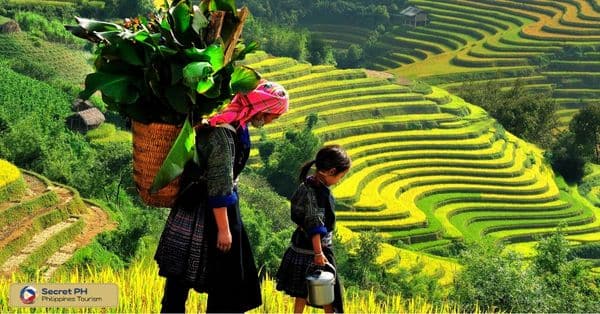
The Indigenous Religions of Benguet
Benguet is home to various indigenous communities with unique cultures and traditions. One of the most fascinating aspects of their culture is their religion. Here, we will explore the indigenous religions of Benguet.
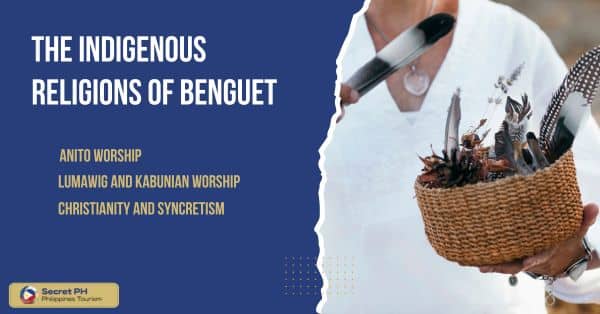
Anito Worship
The Anito worship is one of the oldest and most widely-practiced indigenous religions in Benguet. It involves the veneration of ancestral spirits or anitos. These spirits are believed to have the power to protect the community and bring good fortune. They are also known for punishing those who commit crimes or violate cultural norms.
To show respect to the anitos, the community performs rituals and sacrifices. These include offerings of food, animals, and other materials. The rituals are performed by a babalasang or a shaman who communicates with the spirits.
Lumawig and Kabunian Worship
Lumawig and Kabunian worship is another indigenous religion practiced in Benguet. It involves the worship of two gods, Lumawig and Kabunian. Lumawig is known as the god of creation while Kabunian is the god of the sky and the earth.
The community believes that these gods have the power to control the natural world and bring harmony to their lives. They perform rituals and make offerings to show their gratitude and seek their blessings.
Christianity and Syncretism
With the arrival of Spanish colonizers in the Philippines, Christianity was introduced to the indigenous communities of Benguet. Over time, some of the indigenous religions were blended with Christian beliefs, resulting in syncretic religious practices.
Today, many of the indigenous people in Benguet practice Christianity alongside their traditional religions. They attend church services, celebrate Christian holidays, and observe indigenous rituals.
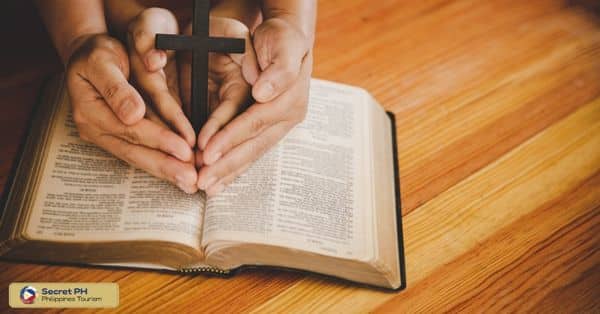
The Beliefs of the Indigenous Peoples of Benguet
Benguet is home to several indigenous peoples who have unique beliefs and practices that have been passed down from generation to generation. Here, we will explore the beliefs of the indigenous peoples of Benguet.
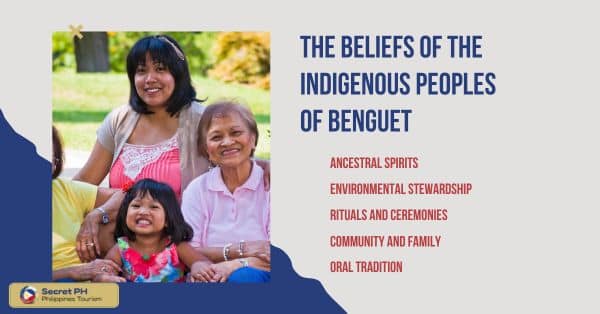
Ancestral Spirits
The indigenous peoples of Benguet believe in ancestral spirits or “anitos” who are believed to protect their families and communities. They also believe that these spirits can bring good luck and blessings to their daily lives.
Environmental Stewardship
The indigenous peoples of Benguet strongly believe in taking care of the environment. They believe that nature is sacred and that humans are responsible for preserving it for future generations. They believe that everything in nature has a spirit and that it should be treated with respect and reverence.
Rituals and Ceremonies
Rituals and ceremonies play an important role in the lives of the indigenous peoples of Benguet. They conduct various rituals and ceremonies throughout the year to honor their ancestors, seek blessings, and celebrate important events such as harvest season.
Community and Family
Community and family are highly valued in the beliefs of the indigenous peoples of Benguet. They believe that everyone is connected and that their actions can affect the entire community. They also believe that families should work together and support each other through good times and bad.
Oral Tradition
The indigenous peoples of Benguet have a rich oral tradition that has been passed down from generation to generation. They believe that stories and legends are important tools for learning and understanding their culture. They also believe that it is their responsibility to preserve these stories for future generations.

The Practices of the Indigenous Peoples of Benguet
Benguet is home to various indigenous groups, such as the Kankana-ey, Ibaloi, Ifugao, and Kalanguya. These groups have rich cultures and traditions that have been passed down from generation to generation. Here, we will explore some of the practices of the indigenous peoples of Benguet.
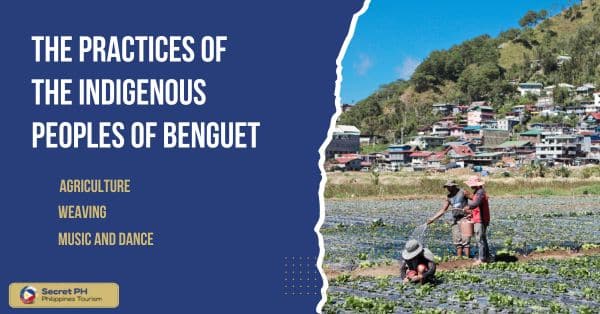
Agriculture
Agriculture is an important aspect of the culture of the indigenous peoples of Benguet. They practice a unique form of farming called terracing, which involves carving out steps into the sides of mountains to create flat surfaces for planting crops. They also use traditional farming methods, such as crop rotation and mixed cropping, to ensure the sustainability of their land.
Weaving
Weaving is another important tradition among the indigenous peoples of Benguet. They weave intricate patterns onto blankets, bags, and other textiles using a backstrap loom. The designs often depict natural elements, such as mountains and rivers, as well as cultural symbols.
Music and Dance
Music and dance are integral parts of the indigenous peoples’ culture in Benguet. They use traditional instruments, such as the gangsa (a set of horizontal gongs), to create rhythmic melodies. They also perform various dances that tell stories about their history and beliefs.
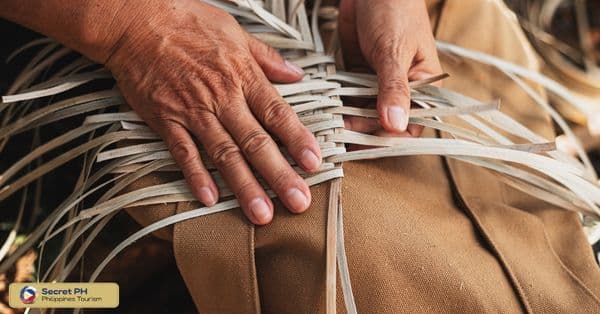
The Challenges Facing the Indigenous Peoples of Benguet
Benguet is a province in the northern part of the Philippines with a rich cultural heritage. It is home to various indigenous peoples (IPs), including the Kankanaey, Ibaloi, and Kalanguya, who have been residing in the area for centuries. However, despite their unique and valuable contributions to Philippine culture and history, the IPs of Benguet continue to face numerous challenges that threaten their way of life.
Here are some of the challenges facing the Indigenous Peoples of Benguet:
1. Lack of Land Ownership and Tenure– One of the biggest challenges that IPs in Benguet face is the lack of land ownership and tenure. Many of them do not have legal titles to the ancestral lands they have been occupying for generations, making them vulnerable to land grabs, displacement, and loss of livelihood.
2. Marginalization and Discrimination– IPs in Benguet also face marginalization and discrimination, particularly in access to basic services such as education, health care, and infrastructure. They are often treated as second-class citizens and are not consulted in decisions that affect their communities.
3. Environmental Degradation– The IPs of Benguet have a deep connection with the environment and rely on it for their survival. However, environmental degradation caused by mining activities, deforestation, and other forms of development threaten their livelihoods and traditional practices.
4. Cultural Erosion– The younger generation of IPs in Benguet is increasingly disconnected from their cultural heritage due to the influence of modernization and globalization. The loss of traditional practices, languages, and beliefs poses a significant threat to the identity and well-being of their communities.
5. Limited Economic Opportunities– The lack of economic opportunities in Benguet forces many IPs to migrate to urban areas in search of work. This results in the disintegration of their communities and the loss of cultural practices and traditions.
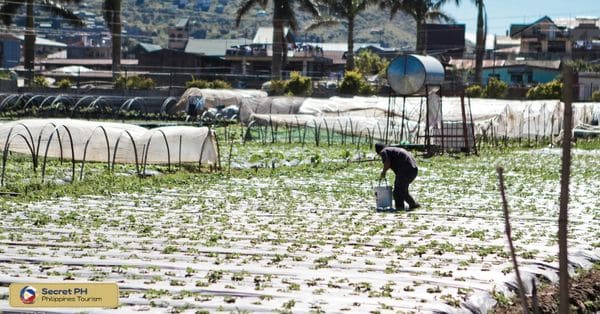
The Future of the Indigenous Religions of Benguet
The future of the indigenous religions of Benguet is uncertain. These religions are facing a number of challenges, including assimilation into mainstream Filipino culture, the encroachment of Christianity, and the loss of traditional knowledge and practices.
However, there are also a number of factors that could help to ensure the survival of these religions, including the efforts of indigenous people to preserve their culture, the support of government and non-government organizations, and the growing interest in indigenous spirituality among non-indigenous people.
It is important to note that the indigenous religions of Benguet are not monolithic. There are a number of different religions practiced in Benguet, each with its own unique beliefs and practices. However, these religions share a number of common features, including a belief in a supreme being, a belief in the importance of nature, and a belief in the importance of community.
The future of the indigenous religions of Benguet is uncertain, but there are a number of factors that could help to ensure their survival. With the support of indigenous people, government, and non-government organizations, these religions can continue to thrive and play an important role in the lives of indigenous people in Benguet.
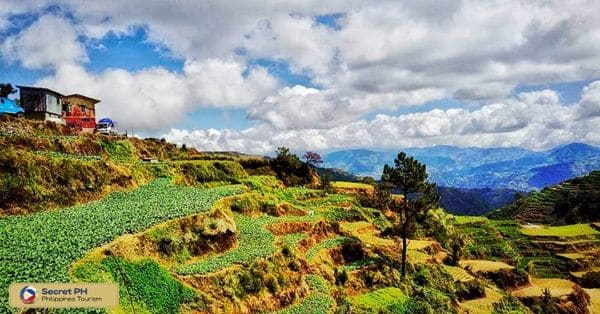
In conclusion
The indigenous religions of Benguet are a vital part of the cultural heritage of the province and must be celebrated and preserved. The people of Benguet have strong beliefs in ancestral spirits, environmental stewardship, rituals and ceremonies, community and family values, and oral traditions.
Despite facing many challenges such as lack of land ownership and tenure, marginalization and discrimination, environmental degradation, cultural erosion, and limited economic opportunities, these religions still have a chance of surviving into the future with the support of indigenous people, government and non-government organizations. It is important to continue to promote awareness of the importance of preserving these religions in order to ensure their survival for generations to come.

